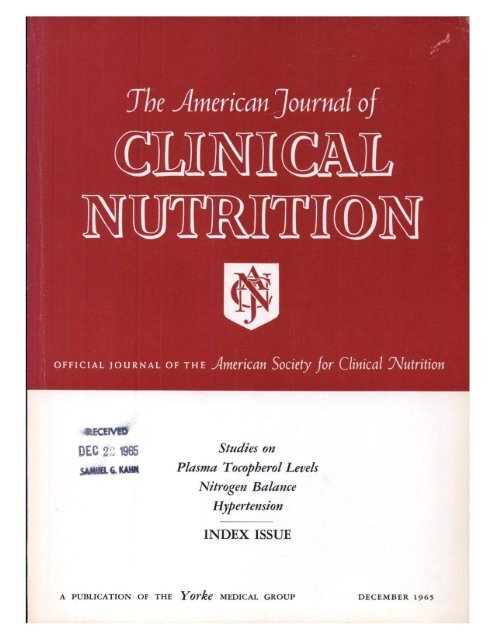Maternal multiple micronutrient supplementation in rural Pakistan increased some milk micronutrient concentrations, but not infant growth, at three-months postpartum: a randomized controlled trial substudy
IF 6.9
1区 医学
Q1 NUTRITION & DIETETICS
引用次数: 0
Abstract
Background
In Pakistan, maternal micronutrient deficiencies are highly prevalent, and stunting affects 43% of infants by 6-mo postpartum. Human milk composition for some micronutrients can be negatively affected by suboptimal maternal nutrition; however, it is unknown whether this affects infant growth.
Objectives
We aimed to determine whether mothers receiving multiple micronutrient supplements (MMSs) compared with standard of care had 1) greater concentrations of iodine, vitamins A, E, and B12, and folate in their milk at 3-mo postpartum; and 2) improved growth of their offspring. Associations between milk micronutrients and infant growth were also explored.
Methods
This substudy was nested within a district-based, cluster-randomized, controlled trial (MaPPS Trial; 25,477 females) with the primary aim of evaluating whether maternal MMS (preconception: twice-weekly, pregnancy and postpartum: daily, to 6-mo postpartum) compared with the standard of care (preconception: no intervention; pregnancy and postpartum: daily iron and folic acid supplementation, to 6-mo postpartum) in rural Pakistan improved infant birthweight. Substudy mother-infant dyads (n = 186) were recruited if infants were term-born and predominantly or exclusively breastfed. Milk micronutrient concentrations were compared to reference values derived from mother’s milk [mother’s milk adequacy estimates (MAEs)].
Results
MMS increased milk iodine and vitamin A concentrations, but not vitamins B12 or E, nor folate. Importantly, few milk sample micronutrients in either arm were above existing MAEs. MMS compared to standard of care did not improve infant growth. Independent of allocation, having all 5 milk micronutrients below MAEs was associated with decreased infant length-for-age z-score (β: –0.39, 95% CI: –0.73, –0.04; P = 0.03).
Conclusions
In a population with maternal micronutrient deficiencies, providing maternal MMS was not associated with milk micronutrient concentrations above MAEs; however, infants born to mothers with milk below MAEs for all investigated micronutrients appeared to experience poorer growth. Further research is needed to understand longer-term implications, if any.
Clinical Trial Registry number and website
ClinlicalTrials.gov: NCT04451395 (https://clinicaltrials.gov/study/NCT04451395) and NCT03287882 (https://clinicaltrials.gov/study/NCT03287882).
一项随机对照试验亚研究显示,在巴基斯坦农村,母亲补充多种微量营养素增加了一些母乳中的微量营养素浓度,但没有增加产后3个月婴儿的生长。
背景:在巴基斯坦,产妇微量营养素缺乏症非常普遍,43%的婴儿在产后6个月出现发育迟缓。母乳中某些微量营养素的组成可能因产妇营养不佳而受到负面影响;然而,尚不清楚这是否会影响婴儿的生长。目的:我们旨在确定接受多种微量营养素补充剂(MMS)的母亲与标准护理相比,是否在产后三个月的母乳中碘、维生素a、E、B12和叶酸的浓度更高;(2)提高后代的生长。还探讨了牛奶微量营养素与婴儿生长之间的关系。方法:本亚研究采用基于地区的整群随机对照试验(MaPPS试验;25,477名女性),主要目的是评估产妇MMS(孕前:每周两次,怀孕和产后:每天,产后6个月)与标准护理(孕前:不干预;怀孕和产后:每天补充铁和叶酸,直到产后6个月)改善了巴基斯坦农村婴儿的出生体重。如果婴儿是足月出生并主要或纯母乳喂养,则招募了母子二人组(n=186)。将牛奶微量营养素浓度与来自母乳的参考值进行比较(母乳充足率估计;梅斯)。结果:MMS增加了牛奶中碘和维生素A的浓度,但没有增加维生素B12或E,也没有增加叶酸。重要的是,两组牛奶样品中的微量营养素都没有超过现有的MAEs。与标准护理相比,MMS并没有改善婴儿的生长。与分配无关,所有五种牛奶微量营养素均低于MAEs与婴儿年龄长度z评分降低相关(β=-0.39, 95% CI: -0.73,-0.04;P = 0.03)。结论:在母亲微量营养素缺乏的人群中,提供母亲MMS与牛奶中微量营养素浓度高于MAEs无关;然而,母乳中所有被调查的微量营养素含量低于MAEs的母亲所生的婴儿似乎发育较差。如果有的话,需要进一步的研究来了解长期影响。临床试验注册号和网站:clinicaltrials.gov: NCT04451395 (https://clinicaltrials.gov/study/NCT04451395)和NCT03287882 (https://clinicaltrials.gov/study/NCT03287882)。
本文章由计算机程序翻译,如有差异,请以英文原文为准。
求助全文
约1分钟内获得全文
求助全文
来源期刊
CiteScore
12.40
自引率
4.20%
发文量
332
审稿时长
38 days
期刊介绍:
American Journal of Clinical Nutrition is recognized as the most highly rated peer-reviewed, primary research journal in nutrition and dietetics.It focuses on publishing the latest research on various topics in nutrition, including but not limited to obesity, vitamins and minerals, nutrition and disease, and energy metabolism.
Purpose:
The purpose of AJCN is to:
Publish original research studies relevant to human and clinical nutrition.
Consider well-controlled clinical studies describing scientific mechanisms, efficacy, and safety of dietary interventions in the context of disease prevention or health benefits.
Encourage public health and epidemiologic studies relevant to human nutrition.
Promote innovative investigations of nutritional questions employing epigenetic, genomic, proteomic, and metabolomic approaches.
Include solicited editorials, book reviews, solicited or unsolicited review articles, invited controversy position papers, and letters to the Editor related to prior AJCN articles.
Peer Review Process:
All submitted material with scientific content undergoes peer review by the Editors or their designees before acceptance for publication.

 求助内容:
求助内容: 应助结果提醒方式:
应助结果提醒方式:


